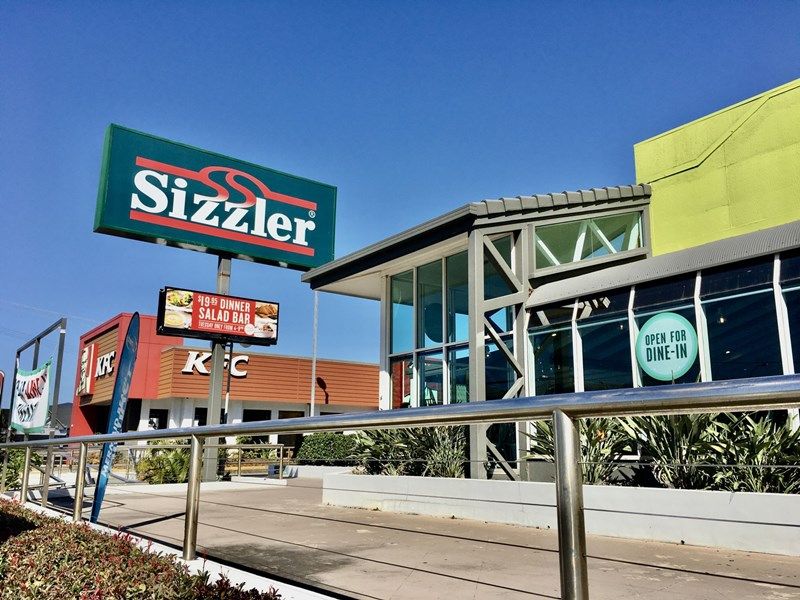COVID the ‘final nail in the coffin’ for Sizzler’s Australian restaurants

The coronavirus pandemic has hammered the final nail in the coffin for Sizzler restaurants in Australia, a one-time family favourite.
The all-you-can-eat buffet chain’s nine remaining Australian restaurants will close by mid-November, 35 years after the first Sizzler opened in Australia.
The heyday for Sizzler was back in the 1980s and 1990s, when Aussies would line up for its salad bar, grills and cheese toast.
View this post on Instagram
“The Sizzler brand was great in the 80s and 90s,” said retail expert Professor Gary Mortimer, from the Queensland University of Technology Business School.
Prof Mortimer said the novelty of a US-style, all-you-can-eat buffet appealed to Australian families and Sizzler, at that time, offered a good value proposition.
“It was truly an Australian family restaurant that represented good value, and the concept of an all-you-can-eat salad bar was a novelty that really tapped into that market,” he said.
The decision to close the final Sizzler restaurants came as no surprise to social scientist Doctor Lauren Rosewarne, from the University of Melbourne.
“It’s a relic from the past,” she said.
Dr Rosewarne expected there would be people who felt nostalgic about the end of Sizzler, in the way they pined for bygone chocolate bars from 20 years ago but said restaurants would not close if people dined there regularly.
“A business can’t pay the bills on nostalgia and Sizzler’s a victim of that,” she said.
Novelty wore off as tastes changed
Prof Mortimer noted the market had changed substantially over the past 20 years.
He said there were other, better value propositions now, highlighting the growth of ‘fast casual’ restaurants that blended fast food with a casual dining experience.
“We see that with better-quality Mexican offers, better quality premium burger offers in the marketplace.”
Consumers had also become more focused on health and wellbeing.
“The all-you-can-eat concept stopped being an attractive offer for people who wanted to watch their consumption,” Prof Mortimer said.
Dr Rosewarne said Australians had embraced the concept of a chain from the US with an all-you-can-eat offer that was affordable.
“But if you flash forward decades later, that idea of all you can eat actually sounds not only unfashionable but unhealthy,” she said.
Sizzler and other iconic Aussie restaurant chains have experienced declining popularity since the ’80s and ’90s.

Sizzler was a long-time family favourite, but its popularity declined from its heyday in the ’80s and ’90s. Picture: realcommercial.com.au
Dr Rosewarne said Australians now wanted a variety of options and a different experience when dining out, rather than being loyal to one establishment.
“It was priced a little high for a chain restaurant and, particularly now, if you’re going to pay those kinds of prices people want an experience that seems a little bit different,” she said.
“The slew of pop-up restaurants is indicative of that, where novelty is now placed at a premium and people want to pay for novelty rather than the same exact experience every time you go in.”
After the news of Sizzler’s closure, one of Dr Rosewarne’s friends recalled how it was a treat for his family to go to Sizzler while he was growing up in Queensland.
“I don’t think we associate chain restaurants with treats anymore,” Dr Rosewarne said.
COVID the end for Sizzler Australia
The coronavirus pandemic impacted both the casual dining experience and Sizzler’s salad bars.
“Coronavirus was the final nail in the coffin for buffets – to ensure compliance and no cross-contamination they had to put restrictions on that salad bar,” Prof Mortimer said.
Parent company Collins Foods, which also operates 240 KFC restaurants and 12 Taco Bell restaurants in Australia, had been reviewing the financial performance of Sizzler Australia restaurants since 2015 when it decided they were no longer a core business.

Owner Collins Foods said COVID had the biggest impact on its Sizzler restaurant brand. Picture: realcommercial.com.au/sale
Of its three restaurant brands, Sizzler had been the hardest hit during the pandemic, the company said on 2 October when announcing the remaining Australian restaurants would close, affecting 600 jobs.
“As a casual dining concept, Sizzler has been the brand in our portfolio most impacted by the COVID-19 pandemic,” Collins Foods CEO Drew O’Malley said.
“Closing restaurants is not something we do often and not a decision we take lightly, especially for a brand as beloved as Sizzler, which has been such an important part of the Collins Foods’ history.”
Collins Foods said since 2015, trading continued in stores with forward-lease obligations and cash-flow positive earnings, while 19 Sizzler restaurants were closed along the way.
Dr Rosewarne said COVID-19 would kill off any kind of business that was already dying.
“I think COVID was the nail in the coffin for a number of different businesses. The writing on the wall has been there for Sizzler for at least a decade,” she said.
Leases were up on final sites
The remaining Sizzler restaurants – five in Queensland, three in Western Australia and one in New South Wales – were all company-owned leasehold sites.
Collins Foods said all nine leases were due for renewal over the next four months, meaning costs associated with lease breaks would be minimal.
The Sizzler site at Mermaid Beach in Queensland has been among the most-viewed on realcommercial.com.au.
Collins Foods said it will continue to license the Sizzler brand in Asia, where it has 75 franchised Sizzler restaurants.
Prof Mortimer said there were different food consumption habits in Asia, adding consumers there were still attracted to westernised dining experiences.







